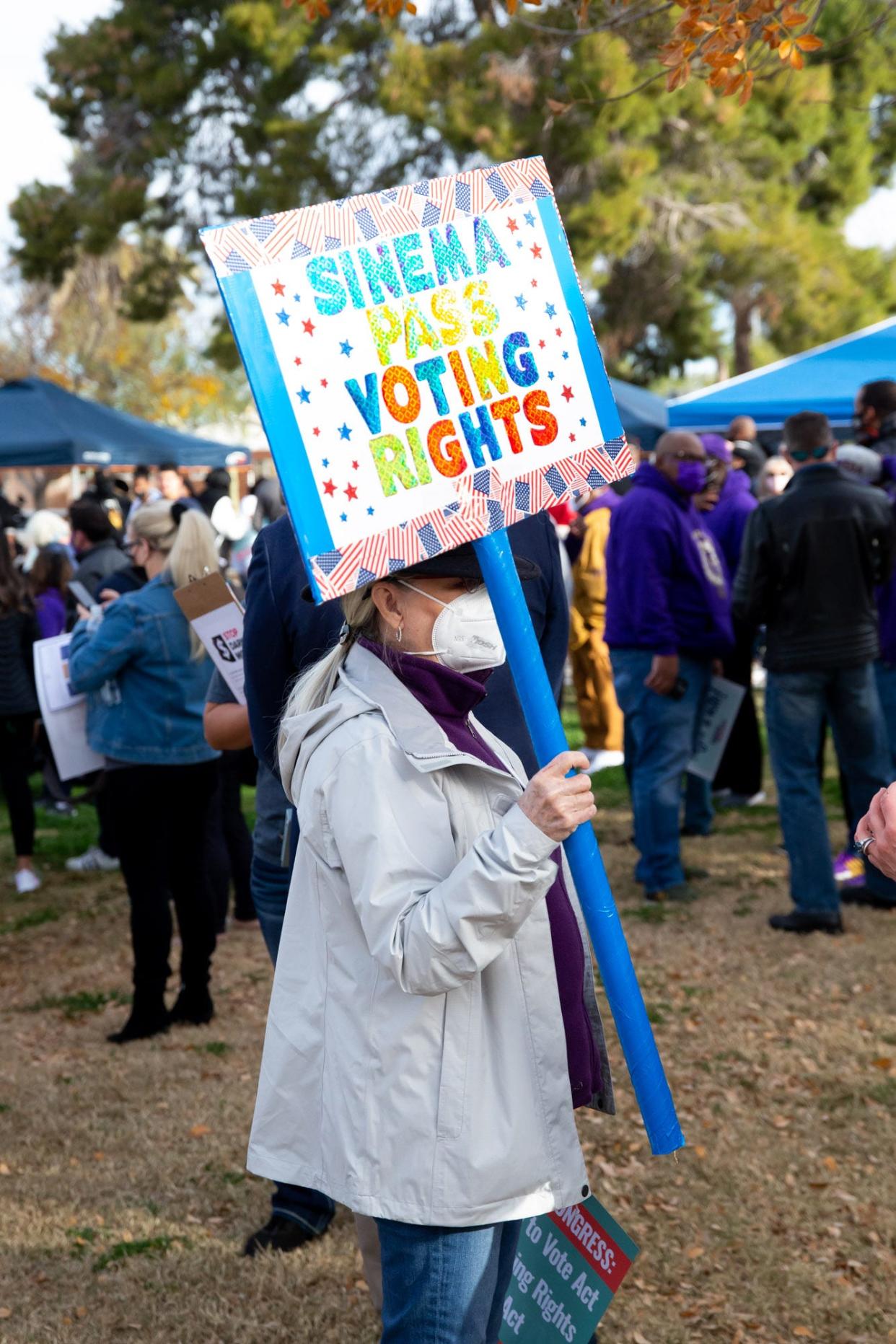Sen. Kyrsten Sinema really should become an independent now
I disagree with Kyrsten Sinema about the virtual filibuster.
With the virtual filibuster, no one actually filibusters. Instead, it is assumed that everything is filibustered and it requires an extraordinary majority of the Senate to pass even routine legislation.
The virtual filibuster developed in the 1970s, so it’s not some venerable rule embedded in the Senate’s history. And, pace Sinema, it has accentuated partisanship in the body rather than ameliorated it.
That said, the savaging of Sinema by progressives for sticking with her convictions and not carving out an exception to the virtual filibuster for the Freedom to Vote: John R. Lewis Act is one of the most shameful things I’ve seen in politics.
But it conveys a message Sinema should heed.
This was not really about voting rights
According to progressives, Sinema is facilitating a return to segregationist voting rules, or Jim Crow 2.0 as President Joe Biden regularly denominates it. This is demagogic nonsense.
There has been remarkably little discussion about what is actually in the Freedom to Vote: John R. Lewis Act. That’s because it’s not really about protecting voting rights. Instead, it’s an attempt to use the camouflage of over-the-top rhetoric about voter suppression to cover the real purpose: use the power of the federal government to change the election rules in every state, in ways that progressives think gives them the advantage.
The most egregious example is a provision for a system of public financing for House candidates. Protecting voting rights doesn’t require taxpayers to subsidize the campaigns of politicians. But there it is in the bill.
What's in the bill? More than you think

The bill would require every state to allow registration and voting on Election Day. Most states have registration deadlines some period of time before Election Day. Having a fixed and vetted voter file for an election is a sensible, and not particularly burdensome, measure to ensure honest elections.
That’s not a view held exclusively in the supposedly redneck South. Just last November, voters in New York, not known as a redneck haven, rejected a ballot measure adopting Election Day registration and voting. Yet Chuck Schumer, a senator for New York and the maestro of this demagogic charade, wants to jam it down the throats of his own dissenting voters, and the voters of every other state in the union.
Another view: 50 GOP senators, not just Sinema, killed democracy
Most states that permit no-excuses early voting also prohibit ballot harvesting, where political activists go around collecting ballots and turning them in. You don’t have to be a budding or closet white supremacist to believe that allowing political activists into the chain of custody for ballots is a monumentally bad idea. Yet the bill would require every state in the union to permit it.
The silliest example is making Election Day a national holiday. Most states already require employers to give their workers time off to vote. In Arizona, roughly 90% of voters cast some kind of early ballot. If the federal government declares the day a national holiday, they will do something. But it won’t be voting.
A tailored bill would do what they claimed
Now, the Republican Party, under Donald Trump, has given reason to doubt its commitment to democratic governance. Trump attempted a coup to stay in office and a dispiriting number of Republican officeholders and officials were willing to be part of it. That’s particularly true here in Arizona.
Republican state legislatures are adopting voting law changes. So far, it’s demagogic to describe them as attempts at voter suppression.
However, if they transgress into that territory, the existing Voting Rights Act gives the federal government ample authority to legally challenge state voting laws that are actually discriminatory.
If Democrats and progressives believe that the existing federal authority is insufficient, a narrowly tailored bill increasing that authority might arguably meet current conditions. Instead, they sought to use federal authority to make wholesale changes in state voting rules and procedures that they think will benefit them.
And ignobly used Jim Crow as cover.
Sinema could still win as an independent
The reaction of progressives has been to write Sinema out of the Democratic Party. They are threatening her with a primary challenge. Donors are vowing not to contribute in the future and demanding a refund on past contributions.
Sinema should accept the message, officially become an independent and declare her intent to run for re-election as an independent. The threat of a primary, which will make her next three years miserable, evaporates. She undoubtedly would continue to caucus with the Democrats, but more clearly on her terms rather than theirs.
Sinema would have a chance to win re-election as an independent, if she was running against a Bernie Sanders Democrat and a Donald Trump Republican. Such a victory would do much to advance the centrist, nonpartisan convictions for which progressives are seeking to punish her.
Reach Robb at robert.robb@arizonarepublic.com.
This article originally appeared on Arizona Republic: Sen. Kyrsten Sinema should become an independent after filibuster vote
